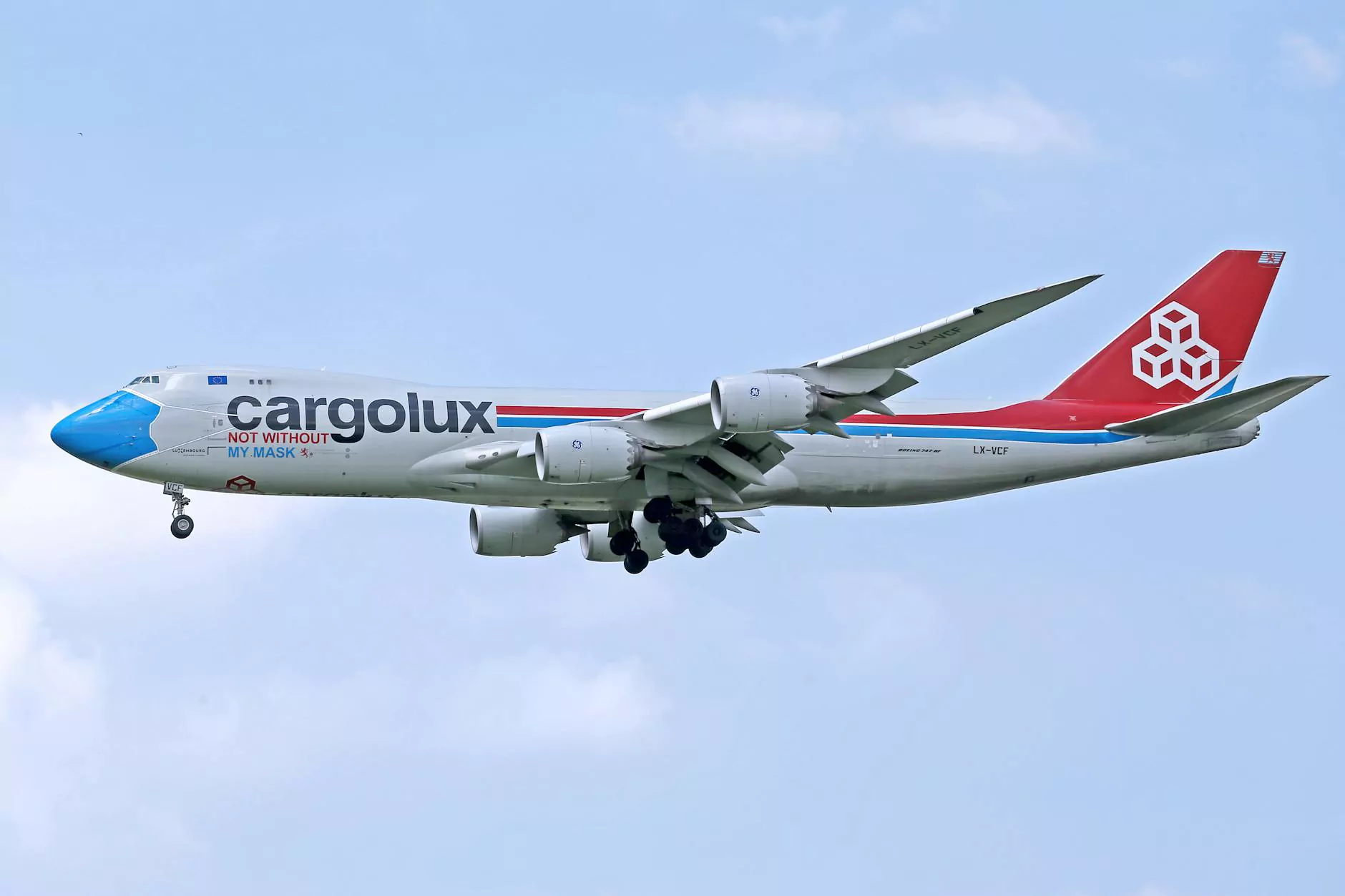Unlocking Business Potential with Competitive Air Freight Rates Per Kg

In the dynamic world of global commerce, effective logistics and transportation form the backbone of successful business operations. Among the myriad of logistical options available, air freight transportation stands out as an unparalleled solution for businesses seeking speed, reliability, and efficiency. Central to the cost-effectiveness of air freight services is the concept of air freight rates per kg, which directly influences profit margins, delivery timelines, and customer satisfaction.
Understanding the Significance of Air Freight Rates Per Kg for Business Growth
In the logistics and shipping industry, air freight rates per kg are more than just numbers; they are vital indicators of operational efficiency and competitiveness. For business owners and logistics managers, understanding and optimizing these rates means the difference between a profitable shipment and a costly mistake.
Lower air freight rates per kg often translate to reduced shipping costs, allowing companies to offer competitive prices to their customers without compromising on quality or delivery speed. Conversely, higher rates may be justified for urgent and high-value shipments, where speed outweighs cost considerations.
By strategically managing freight rates, businesses can improve cash flow, broaden market reach, and establish a resilient supply chain resilient to market fluctuations and economic uncertainties.
Factors Influencing Air Freight Rates Per Kg
Various elements determine the cost variations in air freight, and understanding these factors empowers businesses to negotiate better deals and choose optimal shipping options:
- Distance and Route: Longer routes or less direct flights tend to increase rates due to fuel consumption and logistical complexity.
- Weight and Volume: Pricing primarily depends on the gross weight, but volumetric weight calculations also play a role, especially for large but lightweight packages.
- Type of Cargo: Perishable, hazardous, or high-value goods often attract premium rates due to special handling requirements.
- Market Demand and Seasonality: Peak seasons, such as holidays or events, cause rates to rise because of increased demand for air freight capacity.
- Fuel Prices: Fluctuations in fuel prices significantly impact freight rates, as fuel costs are a major component of airline expenses.
- Airline and Logistics Provider Policies: Different carriers have varied pricing structures, loyalty discounts, and service levels that influence rates.
How to Optimize Air Freight Rates Per Kg for Your Business
Achieving optimal air freight rates per kg involves strategic planning and proactive management. Here are some proven tactics:
- Consolidate Shipments: Combining smaller shipments increases efficiency and reduces per-kilogram costs.
- Optimal Packaging: Use space-efficient packaging to minimize volumetric weight and avoid unnecessary surcharges.
- Negotiate Long-term Contracts: Partnering with trusted logistics providers for ongoing freight needs often secures better rates.
- Plan Ahead: Booking shipments in advance during off-peak periods avoids premium prices due to last-minute demands.
- Leverage Technology: Utilize advanced booking platforms like cargobooking.aero to compare rates, find discounts, and streamline your shipping process.
- Assess Alternative Routes and Carriers: Flexibility in routing or choosing lesser-known but reliable airlines can provide significant savings.
The Role of Advanced Logistics Solutions in Reducing Air Freight Rates Per Kg
Modern logistics solutions and digital platforms are revolutionizing the way businesses manage their air freight expenses. With tools like cargobooking.aero, companies gain access to real-time rate comparisons, capacity availability, and streamlined booking procedures, leading to:
- Enhanced Cost Transparency: Clear insights into pricing structures allow for better budgeting and negotiations.
- Improved Supply Chain Visibility: Tracking shipments and understanding flow helps optimize inventory levels and minimize storage costs.
- Faster Decision-Making: Instant rate quotes and route options enable quicker responses to market changes.
- Reduced Administrative Overhead: Digital booking platforms cut down on paperwork and processing time.
Why Choosing the Right Cargo Booking Partner Matters
Partnering with a reliable cargo booking platform such as cargobooking.aero offers distinct advantages for businesses aiming to optimize their air freight rates per kg. These include:
- Access to Global Network: Extensive carrier partnerships provide flexible options across many destinations.
- Competitive Pricing: Aggregated data and volume discounts lead to lower rates compared to individual negotiations.
- Customizable Service Options: Tailored solutions for different cargo types, delivery times, and budgets.
- Seamless Integration: Easy booking, tracking, and management of shipments via a unified platform.
- Expert Support: Professional advice on route optimization, customs clearance, and compliance issues.
The Future of Air Freight and its Impact on Business
The landscape of air freight transportation is continuously evolving with technological advancements, sustainability initiatives, and market shifts. These developments influence air freight rates per kg and present new opportunities for businesses:
- Adoption of Green Technologies: Reduced emissions and fuel-efficient aircraft can lead to cost savings and rate stability.
- Digital Transformation: AI-driven analytics and automation streamline operations, reducing overhead costs.
- Growth of Hybrid Logistics Models: Combining air freight with sea or land transport to optimize costs and delivery times.
- Increased Capacity and Competition: More carriers entering the market can lower prices and improve service options.
Conclusion: Leveraging Air Freight Rates Per Kg for Competitive Advantage
Understanding and managing air freight rates per kg is essential for any business seeking to optimize its logistics, reduce costs, and enhance customer satisfaction. By leveraging technological tools such as cargobooking.aero, establishing strategic partnerships, and staying informed about market trends, companies can unlock new possibilities for growth and success in global markets.
Ultimately, precision in freight rate management empowers businesses to make smarter decisions, adapt swiftly to market changes, and build a resilient supply chain capable of supporting their long-term goals. Remember, the key to maximizing profitability and gaining competitive advantage lies in how effectively you understand and utilize the dynamics of air freight rates per kg.









